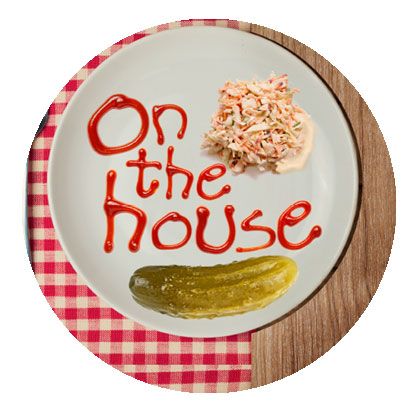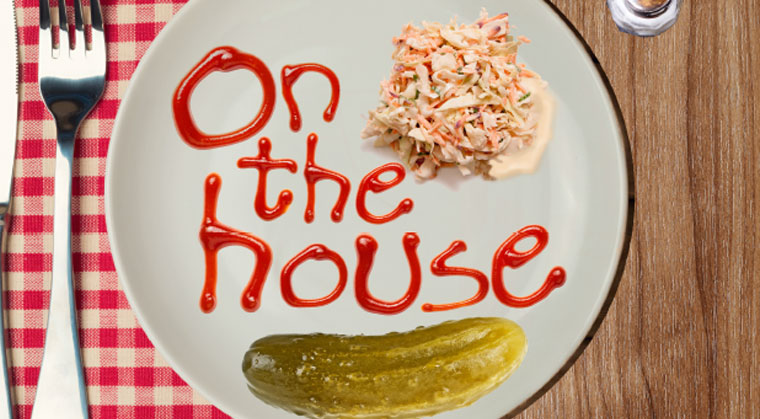On the House: Chapter 13


T
he servers trailed out, the workers were making their ruckus again. But Mimi was mortified. If Zoberman’s wasn’t about family — happy family, working together cheerfully — then what was it? Their image had been held up ugly and bare before the miserable competition, as well as a whole slew of onlookers. Mimi passed a hand over her eyes. So what. Who cares, anyway? Nothing changed just because people’s perceptions did.
She knew that, but she didn’t; gray suede booties and respectable pastimes like baking or sewing were par for the course, she was a well-bred, frum city girl. But what if she wanted a horse of her own to ride through the woods until the sun set? What if she wanted to dance, to invite all her muscles in a flowing synchrony of music, to invite all the world into the unity of sound and movement?
“That was so bad,” Kaylie said.
Mimi shrugged. The old dream inside her whined.
Kaylie, on her way back to the office, turned sharply. “Mimi,” she hissed.
“What?”
“I wonder what they wanted to talk about.”
“Who?”
“The Hive people. Langer. What do you think they want to talk to Daddy about?”
Mimi clicked her heels. “I don’t care. I’d rather forget they were here.”
“You know the feeling when you go on vacation and lend out the apartment and you come back to find your house demolished?” Mimi hissed into her cell phone.
“Thankfully I’ve never tried that.” Levi’s voice was dry.
Mimi sighed. “I’m not getting used to it. It feels like an institution. And then there’s psychological torture. Analyzing all the customers. Who didn’t show up today? Who defected to the bad people?” She was sure Levi was rolling his eyes, but she didn’t care.
“I hate those Hive people. What a miserable bunch of human beings! Really, what were they thinking—” She stopped abruptly. “Eh, forget it. Let me get back to work.”
Levi made an agreeable noise. “I don’t know about the competition, but Zoberman’s doesn’t look so awful. Everything is gray, okay, but it’s new.”
Mimi gave an indignant huff. “Please.”
Mimi walked down the hall and peeked. Binyamin and Kaylie were chatting over lunch. How did Binyamin just tune out so many things — like an overly finished, modern ambience that clashed so rudely with Zoberman’s very essence — and just have a happy lunch? There were a handful of others, but no Bnos Rivka girls today. Her lips curled. Is that how quickly they drop their loyalties? Then she remembered that midterms were over; the girls were tucked away in their classrooms.
The chimes jingled, Brecher lumbered in. She watched as he sat himself down at his usual table. Julio hurried over. “Gefilte fish, sir?”
“Yes, but no chrein for me today!”
Julio blinked.
“The price of sugar went up,” Brecher grumbled. “I have to save money somewhere.”
Mimi chuckled and headed back to her desk. Bernstein, the fruit and vegetable guy, had left her an urgent message.
“I’ll mark that down, so we know for the future,” Mimi said soothingly, after listening to his taut description of the latest troubles.
“Why, hello there!” a voice cried, and Mimi whipped around. There was Sara Malka Teichman herself, clutching her Coach bag. Mimi waved and turned back to her computer, but Sara Malka stopped at the corner of her desk, with a patient air.
Mimi ended the call and looked up.
“How are you, Mimi?” Sara Malka began, sweetly. “How’s it going over here?”
“Baruch Hashem.” Mimi forced a smile.
Sara Malka sighed. “It can’t be easy with the new people across the street, huh?”
(Excerpted from Family First, Issue 590)
Oops! We could not locate your form.


